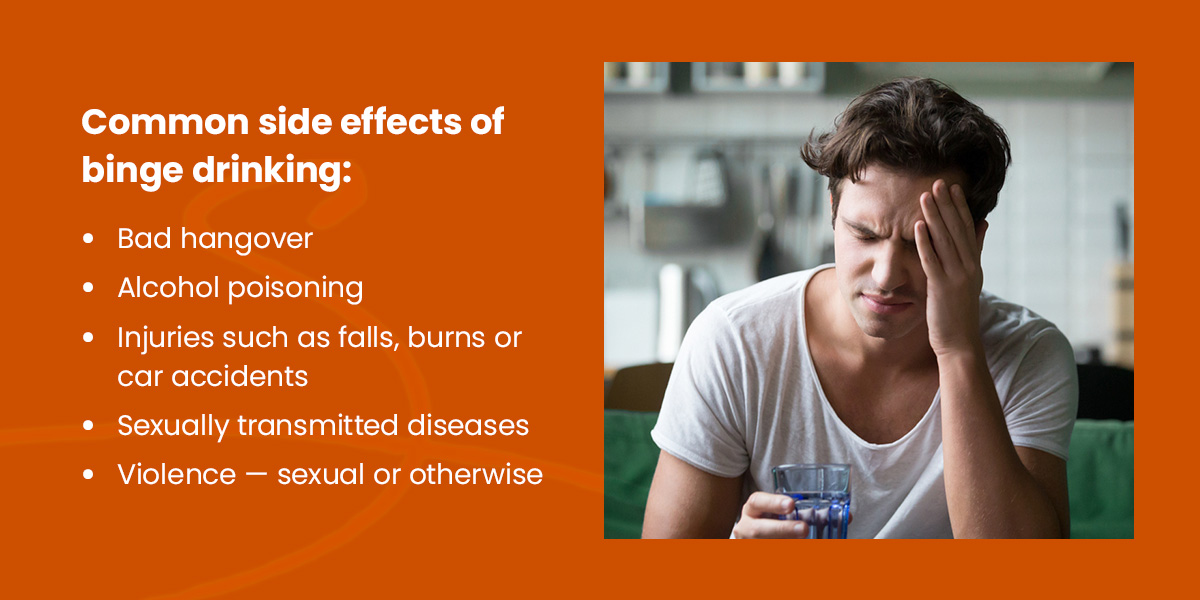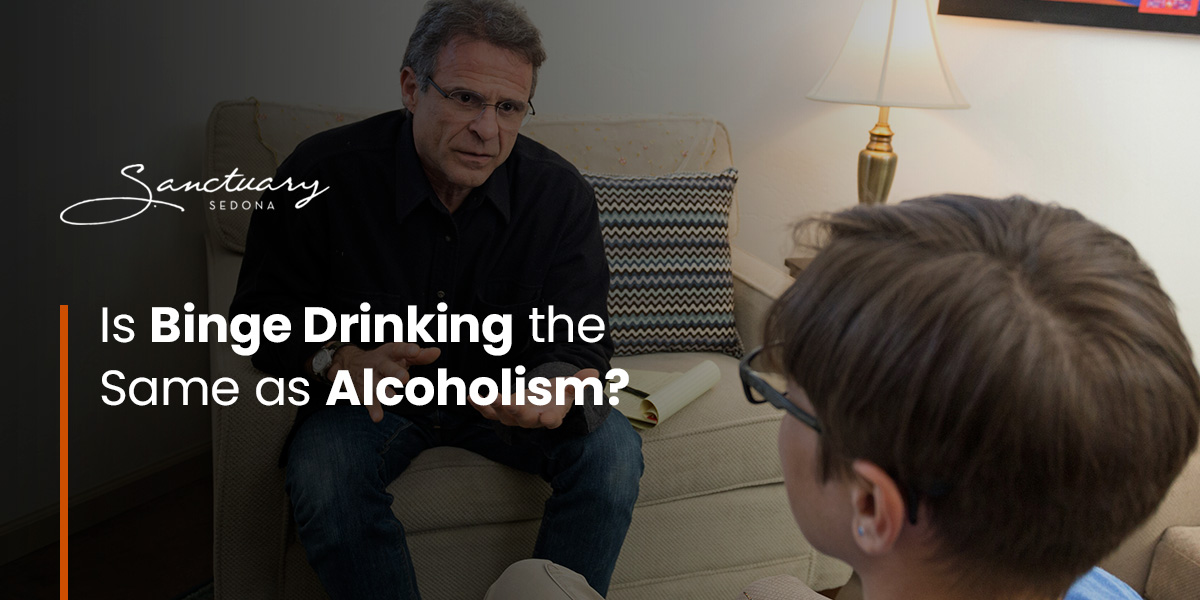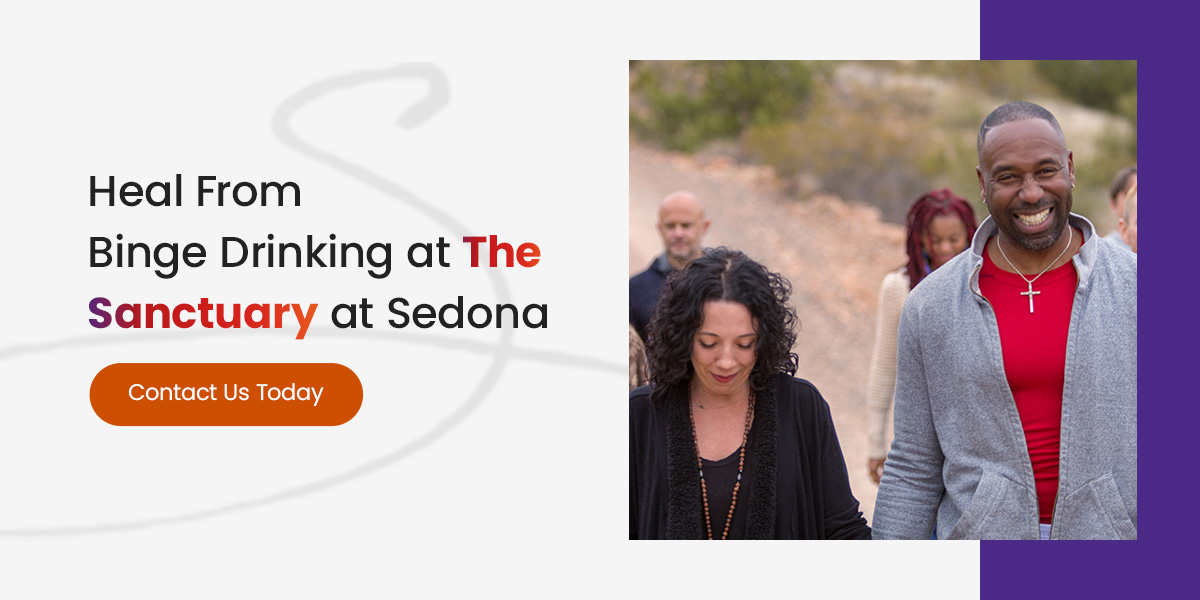If you believe the movies, binge drinking is an all-too-familiar part of American culture. Many popular movies and TV shows portray characters gathered together, drinking socially either in celebration or because they’ve had a really bad day. Over the course of a few short hours, they get completely drunk — and it’s portrayed as either funny or cathartic.
Binge drinking isn’t the glamorous experience you see in the media. Getting drunk is essentially drinking so much of the toxic substance ethanol that your body has to work overtime to eliminate the poison and heal itself — what’s traditionally known as a hangover. In addition to being bad for you, binge drinking can lead to a much bigger problem in your life, creating an alcohol dependency that becomes a full-on addiction.
How many drinks is considered binge drinking? According to the CDC, binge drinking is defined as having five or more alcoholic drinks for a man, and four or more for a woman, at one time. Another way to measure binge drinking is when a person’s blood alcohol levels rise to 0.08% within a two-hour period or less.
A pretty large percentage of Americans engage in binge drinking — 1 in 6 adults, according to the CDC. Some people binge drink as a way to deal with stress, anxiety or unhappiness. Others engage in binge drinking because they enjoy the feeling and the social aspect. Whatever the reason, binge drinking has negative consequences and can seriously damage a person’s life.
What Is Considered Heavy Drinking?
Because every person’s physiology is different, it takes a unique amount of alcohol to impair an individual’s judgment or cause drunkenness. There are some general guidelines that can explain what heavy drinking looks like. Although we can’t measure each individual’s tolerance, we can measure the alcohol levels in their blood.
A standard drink in America has 14.0 grams or 0.6 ounces of pure alcohol in it. Examples of standard drinks include 5 ounces of wine, a single 1.5-ounce shot or a typical 12-ounce beer. If men drink 15 or more of these in a week, they’re considered heavy drinkers. Women are considered heavy drinkers if they have 8 or more of these servings in a week.
Is Binge Drinking Alcoholism?
To be clinically diagnosed with an alcohol use disorder (AUD), you need to meet two of the eleven criteria listed in the Diagnostic and Statistical Manual of Mental Disorders (DSM). People who struggle with an alcohol use disorder can be classified as having mild to severe dependencies, depending on their specific behaviors. Binge drinking can be one of many indicators that you are addicted to drinking.
However, people who binge drink tend to have different habits and patterns than those with an alcohol use disorder. Here are some of the key differences:
Environment
Binge drinkers often get drunk in a social setting. For example, many people drink too much at weddings, graduations and other celebratory events. Of course, some people also binge drink after a particularly bad day or when they’re trying to numb themselves. People who binge drink are often willing to get drunk in a public place in some cases.
People with an alcohol use disorder often drink in secret. Instead of seeking a social setting, they tend to hide their actions from others — whether consciously or subconsciously.
Dependence
While binge drinkers may enjoy the feeling of being drunk, they’re not dependent on it. They don’t think about alcohol constantly or use it frequently enough to develop an addiction. If they want to stop drinking, it’s relatively easy to do so. Of course, it may be challenging to change this habit if they keep putting themselves in situations where social drinking is encouraged.
People with an alcohol use disorder become very dependent on drinking. Even if it’s destroying their life and relationships, they will continue to drink because they can’t stop. Alcohol dependence can seemingly change a person’s entire personality — they can begin lying and stealing to meet their craving, even if they are otherwise an upright and kind person.
Frequency
Binge drinkers can go for a long time without having any alcohol. They tend to drink a lot in a short period of time, and then not drink again for quite a while.
One of the biggest markers of an alcohol use disorder is when a person gets drunk consistently and often. People with AUD can’t go for long periods without drinking, and they crave alcohol frequently. They often have a specific time when they drink, like every evening after work or every weekend once the work week has ended.
There can be some crossover between binge drinking and alcoholism. For example, does weekend binge drinking count as alcoholism? What if it’s in a social situation, and the rest of the week you don’t crave alcohol? Every person is unique, but you can use these guidelines to understand whether or not you have an alcohol dependency — and how strong it may be.

Side Effects of Binge Drinking vs. Alcoholism
While binge drinking and alcoholism are different from a clinical perspective, they both have harmful consequences for your body and life. Alcoholism tends to be worse because it’s essentially binge drinking more often and for a longer period of time. However, binge drinking, even once, can have serious consequences.
Here are several common side effects of binge drinking:
- Bad hangover
- Alcohol poisoning
- Injuries such as falls, burns or car accidents
- Sexually transmitted diseases
- Violence — sexual or otherwise
For alcoholism, include the list above in addition to the one below:
- Cognitive damage
- Heart disease
- Cirrhosis of the liver
- Cancer
- Nerve damage
Unfortunately, this is only a short list. There are many negative consequences to engaging in alcohol misuse. Having a dependency on alcohol can also affect your career, relationships and mental health.
How to Stop Binge Drinking
Both alcoholism and binge drinking are usually the result of underlying problems. If you can address the internal motivations that lead to alcohol misuse, it’s much easier to stop drinking too much. The first step to stop binge drinking is to take a realistic look at when, where and why you binge.
If you drink because you want to feel good, try replacing that with a new habit like regular exercise. If you binge drink because you’re lonely, make that group exercise or join a local hobby-focused group. Some binge drinkers may find that addressing their nutrition and getting supportive NAD+ IV treatments gives them the boost they need to quit drinking for good.
Because binge drinking is a social activity, you may need to find a new friend group or completely change your social life. That can be a hard decision, but it’s worth it. If you find it difficult to stop binge drinking, consider signing up for a transformative, holistic treatment program. Even being away from your normal routine for a month can make a huge difference in breaking old habits.
Heal From Binge Drinking at The Sanctuary at Sedona
Binge drinking can be demoralizing, deconstructing your sense of identity and personal dignity. It can lead to worse habits and a dependence on alcohol that can lead to negative consequences in your relationships, career and mental health. If you’ve tried to stop on your own and are struggling, consider getting treatment at the Sanctuary at Sedona.
We offer a holistic approach to healing, combining therapy options like exercise, nutritional care, NAD+ IV therapy and more. Our goal is to equip you to heal — not just manage the symptoms of alcohol misuse. Are you ready to change your life? Contact us today to learn more about our treatment programs.
He is the Founder, Administrator, Counselor at the Sanctuary at Sedona. He has a BA in Political Science and is currently Senior teaching staff at Four Winds Society, an international school of energy medicine. His credentials also include being an Ordained Minister; a Certified Shamanic Breathwork® Facilitator; a Founding Member Society for Shamanic Practitioners; a Member of Association for Comprehensive Energy Psychology; a Member of the National Institute for Holistic Addiction Studies. [email protected]


